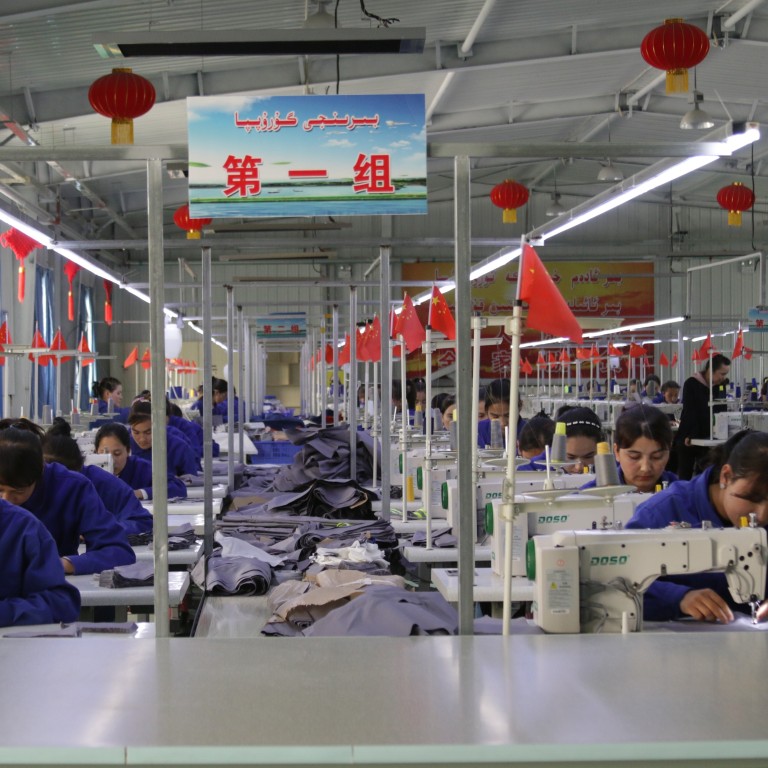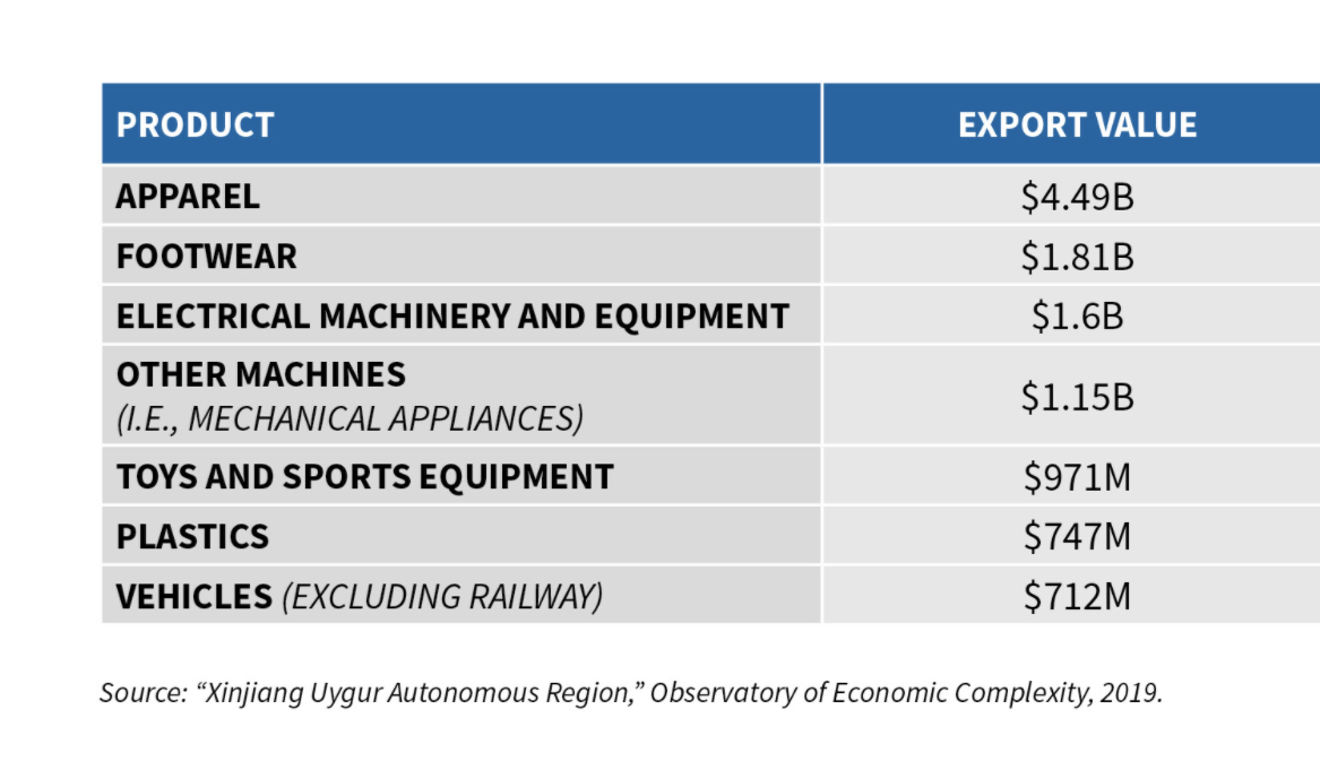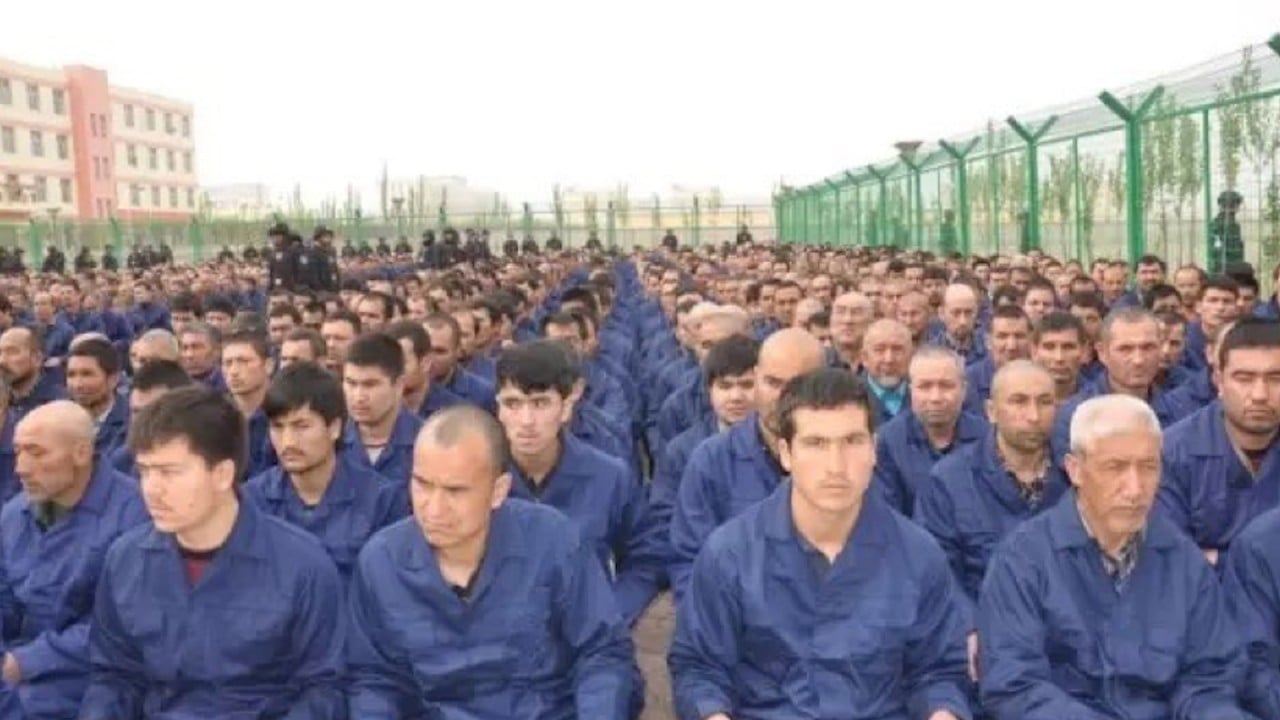
Apparel group urges US to lead multinational campaign against forced labour in Xinjiang
- Official from American Apparel and Footwear Association says more countries must jointly apply pressure on China
- US has already issued sanctions on officials and entities for suspected human rights abuse in Xinjiang
A group representing some of the largest US and international apparel companies has called on Washington to convince other countries to pressure China to end forced labour in its Xinjiang Uygur autonomous region.
An official of the American Apparel and Footwear Association – which represents The Gap, Versace, Jimmy Choo and other brands – said on Thursday that more countries must join diplomatic efforts to halt forced labour in the region.
“The United States has done nothing to bring Europe along, Australia, Canada, Japan, Korea,” Nate Herman, the association’s senior vice-president of policy, said on Thursday in an online discussion hosted by the US-China Business Council.
Herman added that the US needed to “try and bring those other countries, bringing the UN, bringing other international institutions, into this discussion”.
Australia confronts China’s treatment of Uygurs; retailers investigate forced labour claims
Some of the association’s members, such as PVH Corp – owner of the Calvin Klein and Tommy Hilfiger brands – have faced criticism that their products may have involved forced labour from Xinjiang.
PVH announced last year that it added the area as a jurisdiction subject to its “restricted country policy”, meaning that “we do not, and prohibit our licensees from, producing finished goods in Xinjiang”.
“As part of our ongoing, long-term supply chain strategy, we have been communicating for the last six years that we are reducing our manufacturing, textile and cotton footprint in China and increasing our verticality in other manufacturing locations,” PVH said.

As US-China relations have deteriorated in recent years, China’s treatment of the Uygurs, an ethnic Muslim minority based mostly in the region, has become one of the most contentious issues.
The complexity of the supply chain from cotton, fabric or other inputs to finished product makes it difficult for companies to determine whether products they make in China involve forced labour in the Xinjiang Uygur autonomous region (XUAR). Many manufacturers on China’s east coast or elsewhere in the country have production facilities in the region.
US sanctions Chinese entity and individuals over ‘human rights abuses’ against Uygurs
China is the world’s largest producer of cotton yarn, and most of the product “likely predominantly uses cotton from the XUAR, but may also contain imported yarn to achieve the desired quality”, according to a July report by Amy Lehr, director and senior fellow at the Human Rights Initiative at the Washington-based think tank Centre for Strategic and International Studies.
China has repeatedly denied any mistreatment of Uygurs in what it calls vocational training centres, which it says have been successful in combating extremism and violence.

01:09
China claims most Muslim detainees have left Xinjiang re-education camps and returned to society
However, analysts including Lehr agree that more needs to be done in concert with US allies.
The US “hasn’t been consistent and it hasn’t made our traditional allies feel secure and coming out as well, which they know is going to be really high risk if they do it,” Lehr said in the online discussion on Thursday.
“It is obviously a very challenging issue for any government to engage on because China is very important and this is a priority for China,” Lehr said. “And so, when governments do say something, they tend to face consequences.”

